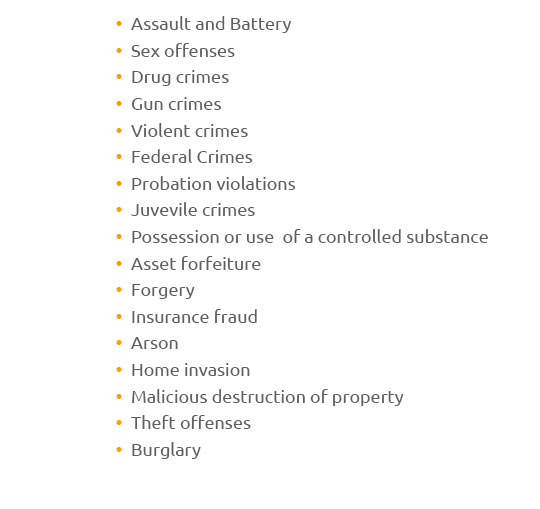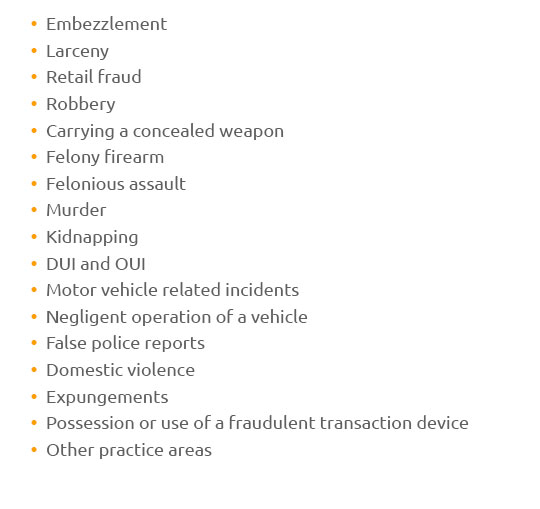 |
|
||||
 |
 |
 |
 |
 |
 |
 |
 |
 |
 |
 |
 |
|
 |
 |
 |
|
||||
Exploring the Multifaceted Role of a Criminal Attorney: A Comprehensive GuideThe role of a criminal attorney is both complex and critically important within the legal system. These legal professionals are tasked with the formidable responsibility of defending individuals and organizations charged with criminal activities. As one delves into the intricacies of this profession, it becomes apparent that it is not merely about representing clients in court but also involves a deep commitment to justice, a robust understanding of the law, and a strategic approach to legal defense. To begin with, criminal attorneys must possess a profound knowledge of the law, especially criminal statutes and legal precedents. This expertise enables them to navigate the intricacies of legal frameworks, ensuring that their clients receive fair trials and the best possible defense. Moreover, the ability to interpret and apply legal principles is crucial, as it forms the backbone of any defense strategy. Communication skills are another cornerstone of a successful criminal attorney's skill set. These professionals must articulate complex legal arguments clearly and persuasively, whether they are negotiating plea deals, presenting evidence, or cross-examining witnesses. Strong communication not only aids in courtroom proceedings but also in building trust and rapport with clients, who often find themselves in distressing situations. Furthermore, analytical thinking is indispensable. Criminal attorneys must scrutinize evidence, identify inconsistencies, and construct logical arguments. This analytical prowess enables them to dismantle the prosecution's case and find weaknesses that can be exploited to their client's advantage. It is often the difference between a conviction and an acquittal. The life of a criminal attorney is also characterized by its dynamic and often unpredictable nature. Time management and organizational skills are therefore vital, as attorneys juggle multiple cases simultaneously, each with its own unique demands and deadlines. This aspect of the job requires a meticulous approach to scheduling and documentation, ensuring that no detail is overlooked. In terms of education and training, aspiring criminal attorneys must first earn a bachelor's degree, followed by a Juris Doctor (JD) degree from an accredited law school. Subsequently, passing the bar examination is mandatory to practice law. However, the learning does not stop there. Continuing education is crucial to stay abreast of new laws, technologies, and practices that impact the field of criminal law. Beyond the technical skills and educational requirements, empathy and resilience are qualities that often distinguish outstanding criminal attorneys from their peers. Defending clients who are sometimes guilty of serious crimes can take a psychological toll. Thus, attorneys must maintain a level of professional detachment while still providing compassionate counsel and support to their clients. Moreover, criminal attorneys often have the opportunity to specialize in specific areas of criminal law, such as white-collar crimes, drug offenses, or violent crimes. This specialization allows them to hone their expertise and become authorities in their chosen niche, thereby enhancing their career prospects and effectiveness in court.
In conclusion, while the path to becoming a criminal attorney is demanding, it is also immensely rewarding for those passionate about justice and advocacy. The profession offers an opportunity to make a profound impact on individuals' lives and society at large, ensuring that every person receives a fair trial and the representation they deserve. For those considering this challenging yet fulfilling career, it is important to cultivate a diverse skill set, pursue continuous learning, and remain steadfast in the pursuit of justice. https://www.indeed.com/hire/job-description/criminal-defense-attorney
Learn about the responsibilities and duties of a Criminal Defense Attorney, along with education, training requirements and salary expectations. https://galelawgroup.com/4-main-duties-of-a-criminal-defense-attorney/
Criminal defense attorneys are responsible for representing their clients throughout the legal process from pre-trial investigations to courtroom proceedings ... https://www.lawyeredu.org/criminal-defense/
Job Description. The primary role of a criminal lawyer is to represent their defendant in the criminal court system. This encompasses arraignments, pretrial ...
|




